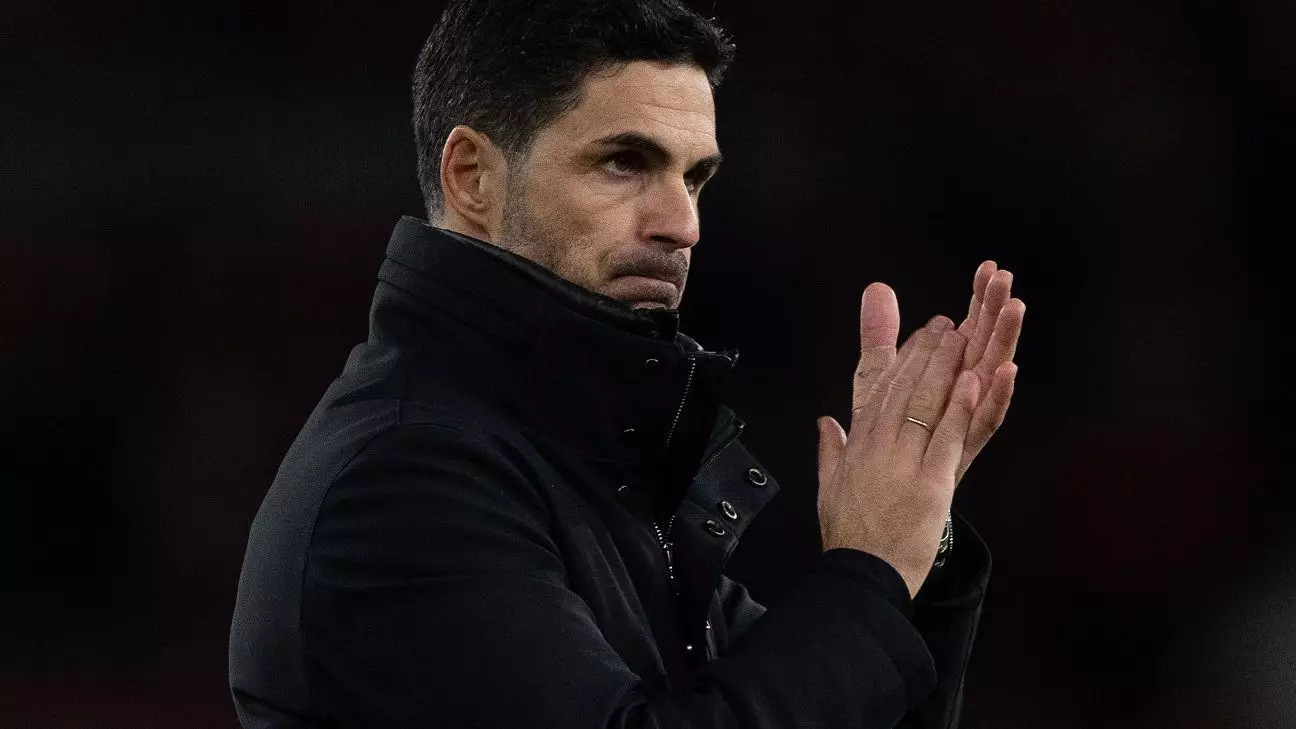In the realm of football transfers, the January window often serves as a crucial juncture for clubs aiming to bolster their squads for the second half of the season. For Arsenal, a club renowned for its attacking flair and ambition, this January presented both a challenge and an opportunity that ultimately went unfulfilled. Mikel Arteta, the Gunners’ manager, expressed his disappointment following the failure to sign a striker, revealing a tension between ambition and financial prudence. Despite a substantial bid for Ollie Watkins from Aston Villa being rejected, Arteta emphasized the importance of staying disciplined in their recruitment strategy.
This sentiment underscores a broader issue within the Arsenal camp: a pressing need for offensive reinforcements following injuries to key players like Bukayo Saka and Gabriel Jesus. Arteta’s reluctance to divulge specific details about why the club couldn’t execute transfers, coupled with his insistence on discipline, points to an overarching strategy that seeks to align player acquisitions with the club’s long-term vision.
For Arteta and the Arsenal hierarchy, the decision to refrain from hasty signings is indicative of a larger, cautious approach to rebuilding the squad. Though fans may have hoped for a swift resolution to bolster the flailing attack, the manager’s comments reveal a commitment to procuring players who align with the club’s philosophy and financial framework. With future considerations in mind, such as potential signings from renowned clubs like Red Bull Leipzig and Newcastle, Arteta’s focus on maintaining a certain profile for incoming talent highlights the complexities of modern football economics.
The manager’s insights suggest a calculated risk rather than mere resignation. By refusing to engage in panic buying, Arteta aims to forge a squad that is not only talented but also cohesive and financially sustainable over the long term. This strategy resonates with a growing sentiment among elite clubs that seeks to avoid the pitfalls of overspending while ensuring that any new arrivals possess the right attributes to enhance the team’s competitive edge.
Despite the management’s strategy, the question of squad depth looms large. Arteta’s acknowledgment that Arsenal is “short” in terms of player numbers reflects the underlying challenges faced by the club in navigating both injuries and competition. While many clubs boast extensive squads capable of weathering the storms of a demanding season, Arsenal’s current setup remains lean. Arteta’s remarks about the absence of a large pool of players are eye-opening, revealing a stark contrast with rival clubs that enjoy deeper selections of talent.
With an awareness of Arsenal’s history and the groundwork laid in recent seasons, Arteta stresses the need to integrate more academy graduates into the first team. This evolution is critical not only for filling the gaps left by injuries but also for ensuring the longevity and sustainability of the squad. The reliance on younger talents requires a delicate balance of match readiness and tactical acumen, pushing the idea that player development must remain a key focus moving forward.
Looking ahead, Arsenal faces pivotal decisions as the summer transfer window approaches. The absence of a striker during the January window raises questions about how the club will manage in upcoming matches, particularly with a pressing fixture against Newcastle in the Carabao Cup. Arteta will need to adapt tactically to overcome the challenges posed by the current injuries while also addressing the increasing urgency of bolstering the squad for next season.
As Arsenal navigates its current landscape, the manager must temper expectations with realism. Winning matches is paramount, but so is carefully sculpting a squad that aligns with the club’s future ambitions. The delicate interplay between in-game performance and strategic recruitment will be at the forefront as Arsenal strives to regain its status as a formidable force in English football.
While Mikel Arteta’s admission of disappointment resonates with both fans and analysts alike, it also serves as a reminder of the ongoing evolution of Arsenal FC. Balancing immediate needs with long-term ambitions will be crucial as the club seeks to advance both on and off the pitch in the seasons to come.

